- Home
- Daphne Du Maurier
The King's General Page 6
The King's General Read online
Page 6
"Indeed," replied Tom Treffry, quite at a loss, and he bent to stroke his dog's ear to hide his confusion.
"Will you have some bacon, Honor?" said Richard, proffering me a platter heaped with fatty pork, but I was too tired and faint to desire anything more than be taken upstairs and put to rest.
Then Jonathan Rashleigh, a man of family and older than Richard and the others, said quietly: "Mistress Honor would prefer to withdraw, I fancy. I would summon one of your servingwomen, Richard."
"Damn it, this is a bachelor household," answered Richard, his mouth crammed with bacon. "There isn't a woman in the place."
I heard a snort from Ranald Mohun, who put a handkerchief to his face, and I saw also the baleful eye that Richard cast upon him, and then somehow they one and all made their excuses, and got themselves from the room, and we were alone at last.
"I was a fool to come," I said. "Now I have disgraced you before all your friends."
"I was disgraced long since," he said, pulling himself another tankard of ale; "but it was well you came after breakfast rather than before."
"Why so?" I asked.
He smiled, and drew a document from his breast.
"I have sold Killigarth, and also the lands I hold in Tywardreath," he answered. "Rashleigh gave me a fair price for them. Had you blundered in sooner he might have stayed his hand."
"Will the money pay your debts?" I said.
He laughed derisively. "A drop in the ocean," he said; "but it will suffice for a week or so, until we can borrow elsewhere."
"Why 'we'?" I inquired.
"Well, we shall be together," he answered. "You do not think I am going to permit this ridiculous match with Edward Champernowne?" He wiped his mouth, and pushed aside his plate, as though he had not a care in the world. He held out his arms to me, and I went to him. "Dear love," I said, feeling in sudden very old and very wise, "you have told me often that you must marry an heiress, or you could not live."
"I should have no wish to live if you were wedded to another man," he answered. Some little time was wasted while he assured me of this.
"But, Richard," I said presently, "if I wed you instead of Edward Champernowne, my brother may refuse his sanction."
"I'll fight him if he does."
"We shall be penniless," I protested.
"Not if I know it," he said. "I have several relatives as yet unfleeced. Mrs. Abbot, my old aunt Katherine up at Hartland, she has a thousand pounds or so she does not want."
"But we cannot live thus all our lives," I said.
"I have never lived anyway else," he answered.
I thought of the formalities and deeds that went with marriage, the lawyers and the documents.
"I am the youngest daughter, Richard," I said, hesitating. "You must bear in mind that my portion will be very small."
At this he shouted with laughter, and, lifting me in his arms, carried me from the room. "It's your person I have designs upon," he said. "God damn your portion."
5
Oh, wild betrothal, startling and swift, decided on in an instant without rhyme or reason, and all objections swept aside like a forest in a fire. My mother was helpless before the onslaught, my brothers powerless to obstruct. The Champernownes, offended, withdrew to Radford, and Jo, washing his hands of me, went with them. His wife would not receive me now, having refused her brother, and I was led to understand that the scandal of my conduct had spread through the whole of Devon. Bridget's husband came posting down from Holberton, and John Pollexefen from Mothercombe, and all the West, it seemed, said I had eloped with Richard Grenvile and was to wed him now through dire necessity. He had shamed me in a room at Plymouth--he had carried me by force to Killigarth--I had lived there as his mistress for three months--all these and other tales were spread abroad, and Richard and I, in the gladness of our hearts, did naught but laugh at them. He was for taking horse to London, and giving me refuge with the Duke of Buckingham, who would, he declared, eat out of his hand and give me a dowry into the bargain, but at this moment of folly his brother Bevil came riding to Lanrest, and, with his usual grace and courtesy, insisted that I should go to Stowe and be married from the Grenvile home. Bevil brought law and order into chaos, his approval lent some shadow of decency to the whole proceeding--a quality which had been lacking hitherto; and within a few days of his taking charge my mother and I were safely housed at Stowe, where Kit had gone as a bridegroom nearly eight years before. I was too much in love by then to care a whit for anyone, and, like someone who has feasted too wisely and too well, I swam through the great rooms at Stowe aglow with confidence, smiling at old Sir Bernard, bowing to all his kinsmen, in no more awe of the grandeur about me than I had been of the familiar, dusty corners in Lanrest. I have small recollection now of what I did, or whom I saw--save that there were Grenviles everywhere and all of them auburn haired, as Bridget had once told me--but I remember pacing up and down the great gardens while Sir Bernard discoursed solemnly upon the troubles brewing between His Majesty and Parliament, and I remember, too, standing for hours in a chamber--that of the Lady Grace, Bevil's wife--while her women pinned my wedding gown upon me, and gathered it, and tuckered it, and pinned it yet again, while she and my mother gave advice, and a heap of children, as it seemed to me, played about the floor.
Richard was not much with me. I belonged to the women, he said, during these last days. We would have enough of one another by and by. These last days--what a world of prophecy.
Nothing, then, remains out of the fog of recollection but that final afternoon in May, and the sun that came and went behind the clouds, and a high wind blowing. I can see now the guests assembled on the lawns, and how we all proceeded to the falconry, for an afternoon of sport was to precede a banquet in the evening.
There were the goshawks on their perches, preening their feathers and stretching their wings, the tamer of them permitting our approach; and further removed, solitary upon their blocks in the sand, their larger brethren, the wild-eyed peregrines.
The falconers came to leash and jess the hawks, and hood them ready for the chase, and as they did this the stablemen brought the horses for us, and the dogs who were to flush the game yelped and pranced about their heels. Richard mounted me upon the little chestnut mare that was to be mine hereafter, and, as he turned to speak a moment to his falconer about the hooding of his bird, I looked over my shoulder and saw a conclave of horsemen gathered about the gate to welcome a new arrival. "What now?" said Richard, and the falconer, shading his eyes from the sun, turned to his master with a smile.
"It is Mrs. Denys," he said, "from Orley Court. Now you can match your red hawk with her tiercel."
Richard looked up at me and smiled.
"So it has happened after all," he said, "and Gartred has chosen to visit us." They were riding down the path towards us, and I wondered how she would seem to me, my childhood enemy, to whom, in so strange a fashion, I was to be related once again. No word had come from her, no message of congratulation, but her natural curiosity had won her in the end. "Greetings, sister," called Richard, the old sardonic mockery in his voice. "So you have come to dance at my wedding after all."
"Perhaps," she answered. "I have not yet decided. Two of the children are not well at home." She rode abreast of me, that slow smile that I remembered on her face. "How are you, Honor?"
"Well enough," I answered.
"I never thought to see you become a Grenvile."
"Nor I either."
"The ways of Providence are strange indeed. You have not met my husband." I bowed to the stranger at her side, a big, bluff, hearty man, a good deal older than herself. So this was the Antony Denys, who had caused poor Kit so much anguish before he died. Maybe it was his weight that had won her. "Where do we ride?" she asked, turning from me to Richard.
"In the open country, towards the shore," he answered.
She glanced at the falcon on his wrist. "A red hawk," she said, one eyebrow lifted, "not in her full plumage. Do yo
u think to make anything of her?"
"She has taken kite and bustard, and I propose to put her to a heron today if we can flush one."
Gartred smiled. "A red hawk at a heron," she mocked. "You will see her check at a magpie and nothing larger."
"Will you match her with your tiercel?"
"My tiercel will destroy her, and the heron afterwards."
"That is a matter of opinion."
They watched each other like duelists about to strike, and I remembered how Richard had told me they had fought with one another from the cradle. I had my first shadow of misgiving that the day would turn in some way to disaster. For a moment I wondered whether I would plead fatigue and stay behind. I rode for pleasure, not for slaughter, and hawking was never my favorite pastime.
Gartred must have observed my hesitation, for she laughed and said: "Your bride loses her courage. The pace will be too strong for her."
"What?" said Richard, his face falling. "You are coming, aren't you?"
"Why, yes," I said swiftly. "I will see you kill your heron."
We rode out to the open country, with the wind blowing in our faces and the sound of the Atlantic coming to us as the long surf rollers spilled themselves with a roar onto the shore far below. At first the sport was poor, for no quarry larger than a woodcock was flushed, and to this the goshawks were flown, who clutch their prey between their claws, and do not kill outright, like the large-winged peregrines. Richard's falcon and Gartred's tiercel were still hooded, and not slipped, for we were not yet come upon the heron's feeding ground. My little mare pawed restlessly at the ground, for up to the present we had had no run and the pace was slow. Near a little copse the falconers flushed three magpies and a cast of goshawks were flown at them, but the cunning magpies, making up for lack of wing power by cunning, scuttled from hedge to hedge, and after some twenty minutes or so of hovering by the hawks, and shouting and driving by the falconers, only one magpie was taken.
"Come. This is poor indeed," said Gartred scornfully. "Can we find no better quarry, and so let fly the falcons?"
Richard shaded his eyes from the sun, and looked towards the west. A long strip of moorland lay before us, rough and uneven, and at the far end of it a narrow, soggy marsh, where the duck would fly to feed in stormy weather, and at all seasons of the year, so Richard told me, the seabirds came, curlews, and gulls, and herons.
There was no bird as yet on passage through the sky, save a small lark high above our heads, and the marsh, where the herons might be found, was still two miles away.
"I'll match my horse to yours, and my red hawk to your tiercel," said Richard suddenly, and even as he spoke he let fly the hood of his falcon and slipped her, putting spurs to his horse upon the gesture. Within ten seconds Gartred had followed suit, her gray-winged peregrine soaring into the sun, and she and Richard were galloping across the moors towards the marsh, with the two hawks like black specks in the sky above them. My mare, excited by the clattering hoofs of her companions, took charge of me, nearly pulling my arms out of their sockets, and she raced like a mad thing in pursuit of the horses ahead of us, the yelping of the dogs and the cries of the falconers whipping her speed. My last ride. The sun in my eyes, the wind in my face, the movement of the mare beneath me, the thunder of her hoofs, the scent of the golden gorse, the sound of the sea. Unforgettable, unforgotten, deep in my soul for all time. I could see Richard and Gartred racing neck to neck, flinging insults at each other as they rode, and in the sky the male and female falcons pitched and hovered. When suddenly away from the marsh ahead of us rose a heron, his great gray wings unfolding, his legs trailing. I heard a shout from Richard, and an answering cry from Gartred, and in an instant it seemed the hawks had seen their quarry, for they both began to circle above the heron, climbing higher and still higher, swinging out in rings until they were like black dots against the sun. The watchful heron, rising too, but in a narrower circle, turned downwind, his queer, ungainly body strangely light and supple, and like a flash the first hawk dived to him--whether it was Richard's young falcon or Gartred's tiercel I could not tell--and missed the heron by a hair's breadth. At once, recovering himself, he began to soar again, in ever higher circles, to recover his lost pitch, and the second hawk swooped, missing in like manner.
I tried to rein in my mare, but could not stop her, and now Gartred and Richard had turned eastward too, following the course of the heron, and we were galloping three abreast, the ground rising steadily towards a circle of stones in the midst of the moor.
"Beware the chasm," shouted Richard in my ear, pointing with his whip, but he was past me like the wind and I could not call to him.
The heron was now direct above my head, and the falcons lost to view, and I heard Gartred shout in triumph: "They bind--they bind--my tiercel has her," and, silhouetted against the sun, I saw one of the falcons locked against the heron and the two come swinging down to earth not twenty yards ahead.
I tried to swerve, but the mare had the mastery, and I shouted to Gartred as she passed me, "Which way is the chasm?" but she did not answer me. On we flew towards the circle of stones, the sun blinding my eyes, and out of the darkening sky fell the dying heron and the blood-bespattered falcon, straight into the yawning crevice that opened out before me. I heard Richard shout, and a thousand voices singing in my ears as I fell.
It was thus, then, that I, Honor Harris of Lanrest, became a cripple, losing all power in my legs from that day forward until this day on which I write, so that for some twenty-five years now I have been upon my back, or upright in a chair, never walking any more, or feeling the ground beneath my feet. If anyone therefore thinks that a cripple makes an indifferent heroine to a tale, now is the time to close these pages and desist from reading. For you will never see me wed to the man I love, nor become the mother of his children. But you will learn how that love never faltered, for all its strange vicissitudes, becoming to both of us, in later years, more deep and tender than if we had been wed, and you will learn also how, for all my helplessness, I took the leading part in the drama that unfolded, my very immobility sharpening my senses and quickening my perception, while chance itself forced me to my role of judge and witness. The play goes on, then--what you have just read is but the prologue.
6
It is not my purpose to survey, in these afteryears, the suffering, bodily and mental, that I underwent during those early months when my life seemed finished. They would make poor reading. And I myself have no inclination to drag from the depths of my being a bitterness that is best forgotten. It is enough to say that they feared at first for my brain, and I lived for many weeks in a state of darkness. As little by little clarity returned, and I was able to understand the full significance of my physical state, I asked for Richard; and I learned that, after having waited in vain for some sign from me, some thread of hope from the doctors that I might recover, he had been persuaded by his brother Bevil to rejoin his regiment. This was for the best. It was impossible for him to remain inactive. The assassination at Portsmouth of his friend the Duke of Buckingham was an added horror, and he set sail for France with the rest of the expedition in that final halfhearted attack on La Rochelle. By the time he returned I was home again at Lanrest, and had sufficient strength of will to make my decision for the future. This was never to see Richard again. I wrote him a letter, which he disregarded, riding down from London express to see me. I would not see him. He endeavored to force his way into my room, but my brothers barred the way. It was only when the doctors told him that his presence could but injure me further that he realized the finality of all bonds between us. He rode away without a word. I received from him one last letter, wild, bitter, reproachful--then silence.
In November of that year he married Lady Howard of Fitzford, a rich widow, three times wed already, and four years older than himself. The news came to me indirectly, an incautious word let slip from Matty and at once confusedly covered, and I asked my mother the truth. She had wished to hide it from me
, fearing a relapse, and I think my calm acceptance of the fact baffled her understanding.
It was hard for her, and for the rest of them, to realize that I looked upon myself now as a different being. The Honor that was had died as surely as the heron that afternoon in May, when the falcon slew him.
That she would live forever in her lover's heart was possible, no doubt, and a lovely fantasy, but the Richard that I knew and loved was made of flesh and blood; he had to endure, even as I had.
I remember smiling, as I lay upon my bed, to think that after all he had found his heiress, and such a notorious one at that. I only hoped that her experience would make him happy, and her wealth insure him some security.
Meanwhile, I had to school myself to a new way of living, and day after day immobility. The mind must atone for the body's helplessness. Percy returned from Oxford about this time, bringing his books of learning, and with his aid I set myself the task of learning Greek and Latin. He made an indifferent though a kindly tutor, and I had not the heart to keep him long from his dogs and his horses, but at least he set me on the road to reading, and I made good progress. The family were all most good and tender. My sisters and their children, tearful and strung with pity as they were at first, soon became easy in my presence, when I laughed and chatted with them, and little by little I--the hitherto spoiled darling--became the guide and mediator in their affairs, and their problems would be brought to me to solve. I am speaking now of years, and not of months, for all this did not happen in a day. Matty, my little maid, became from the first moment my untiring slave and bondswoman. It was she who learned to read the signs of fatigue about my eyes, and hustled my visitors from the room. It was she who attended to my wants, to my feeding, and my washing, though after some little while I learned to do this for myself; and after three years, I think it was, my back had so far strengthened that I was able to sit upright and move my body. I was helpless, though, in my legs, and during the autumn and the winter months, when the damp settled in the walls of the house, I would feel it also in my bones. It caused me great pain at times, and then I would be hard put to it to keep to the standard of behavior I had set myself. Self-pity, that most insidious of poisons, would filter into my veins, and the black devils fill my mind, and then it was that Matty would stand like a sentinel at the door and bar the way to all intruders. Poor Matty, I cursed her often enough when the dark moods had me in thrall, but she bore with me unflinchingly. It was Robin, my dear good Robin, and most constant companion, who first had the thought of making me my chair, and this chair, that was to propel me from room to room, became his pet invention. He took some months in the designing of it, and when it was built, and I was carried to it, and could sit up straight and move the rolling wheels without assistance, his joy I think was even greater than my own.

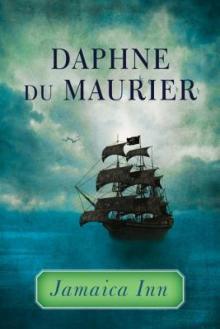 Jamaica Inn
Jamaica Inn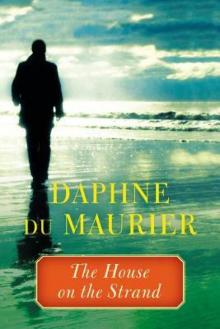 The House on the Strand
The House on the Strand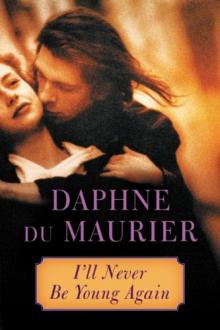 I'll Never Be Young Again
I'll Never Be Young Again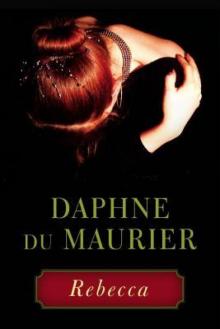 Rebecca
Rebecca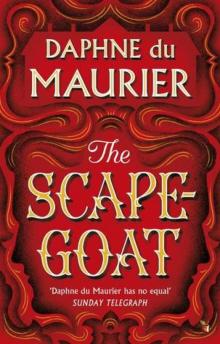 The Scapegoat
The Scapegoat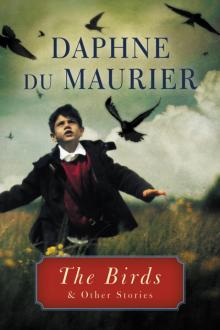 The Birds and Other Stories
The Birds and Other Stories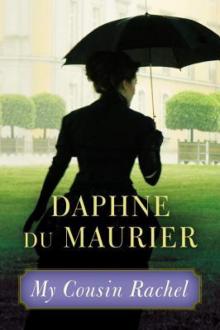 My Cousin Rachel
My Cousin Rachel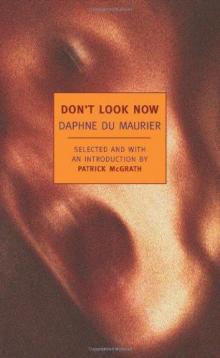 Don't Look Now
Don't Look Now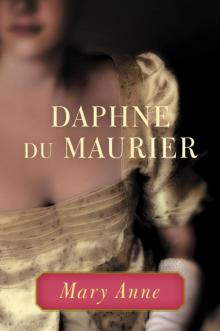 Mary Anne
Mary Anne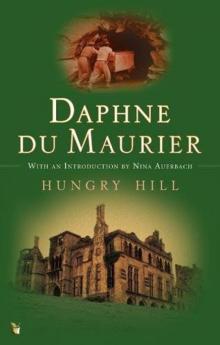 Hungry Hill
Hungry Hill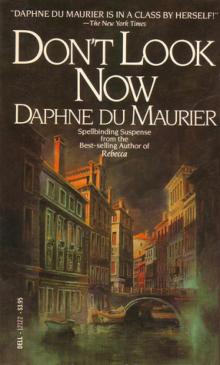 Don't Look Now and Other Stories
Don't Look Now and Other Stories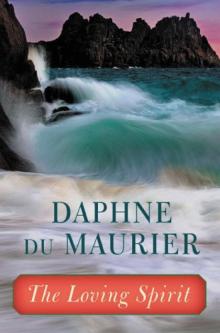 The Loving Spirit
The Loving Spirit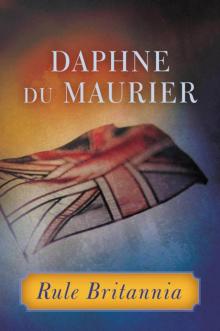 Rule Britannia
Rule Britannia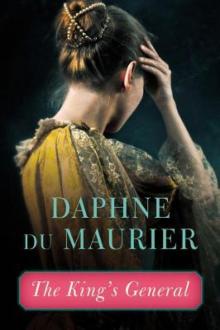 The King's General
The King's General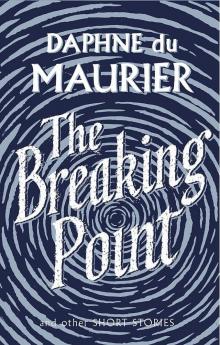 The Breaking Point: Short Stories
The Breaking Point: Short Stories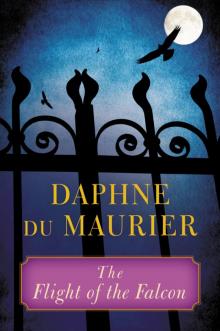 The Flight of the Falcon
The Flight of the Falcon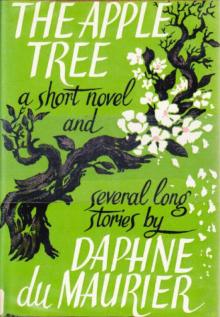 The Apple Tree: a short novel & several long stories
The Apple Tree: a short novel & several long stories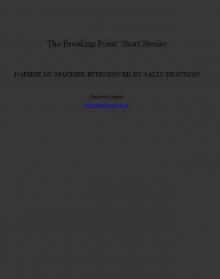 The Breaking Point
The Breaking Point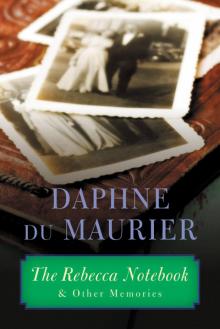 The Rebecca Notebook
The Rebecca Notebook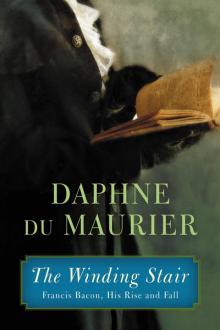 The Winding Stair: Francis Bacon, His Rise and Fall
The Winding Stair: Francis Bacon, His Rise and Fall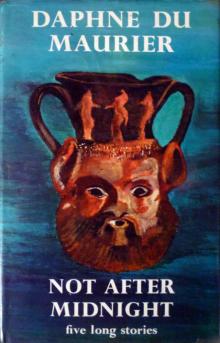 Not After Midnight & Other Stories
Not After Midnight & Other Stories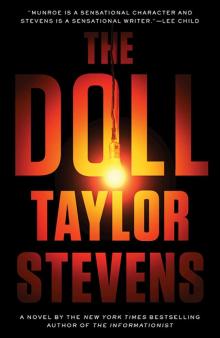 The Doll
The Doll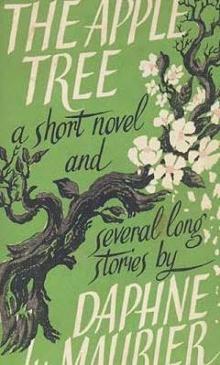 The Apple Tree
The Apple Tree